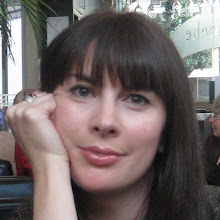I've been a bit quiet - perhaps because my momentum got lost in a plethora of actual work, and, I have to admit, a fabulous busy weekend with parties and friends . . . . ooops.
However, thanks to Andrea's mean words, I am now reinvigorated, and have written my first 250 words of the day - I am planning several blocks like that interspersed with writing a "roadmap" (it's a metaphor, I think). Fortunately, mine is not on nanotechnology: it is on indigenous knowledges, peoples and identities, which is actually probably harder to "map" than nanotech.
My hiatus has also been caused by the nature of what I'm writing. I got stuck in a literary bog of hopelessness and despair as I tried to write the first person account of the Armenian genocide. I've taken heart from the fact that many of you don't write sequentially and have decided to set this section aside for a while, to be returned to in short bursts rather than total immersion, as I was getting too sad, too overcome by the horror of history, and the shortness of human memory.

Here are the things that saved me from the bog:
Thank you Martin Luther King Jr, for this quote that reminds me that there is hope in Lucine's story. It bends towards justice. I love this concept, which contains within it an image of a plant seeking light.
Then there is this: Chagall's double portrait with a glass of wine, in which the artist and his beloved reinact the joyous Jewish  marriage ceremony, both Paris and the shtetl in the background. My book must do this too - show the Adana and London, the past and the future, the dead and the living.
marriage ceremony, both Paris and the shtetl in the background. My book must do this too - show the Adana and London, the past and the future, the dead and the living.
 marriage ceremony, both Paris and the shtetl in the background. My book must do this too - show the Adana and London, the past and the future, the dead and the living.
marriage ceremony, both Paris and the shtetl in the background. My book must do this too - show the Adana and London, the past and the future, the dead and the living. This picture, and those words, have seen me through writing 40,000 words about slavery; they've been beside me as I wrote 20,000 words about the expulsion of Jews from Spain and Portugal; they've helped me write a conference paper on Chaim Potok's responses to the Holocaust. They'll do me right now.
